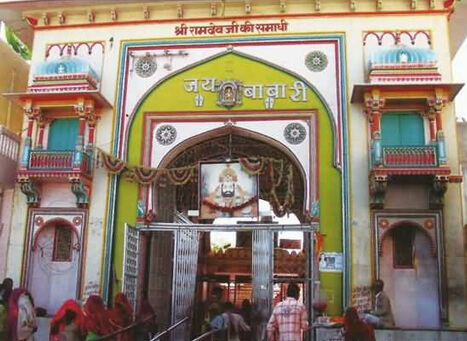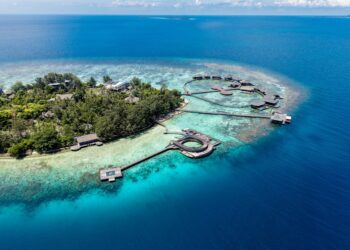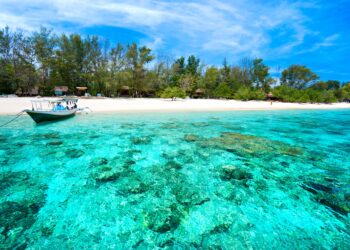In Pokhran, Rajasthan, a town known for its fort and desert sands, the Ramdevra Temple is a sacred place for Baba Ramdevji, a saint loved by Hindus as Lord Krishna’s form and by Muslims as Ramshah Pir. Found in Ramdevra village, 12 kilometers from Pokhran, this temple draws devotees who pray and travelers alike. It shows Rajasthan’s deep faith and the saint’s call for equality.
History of Ramdevra Temple
The Ramdevra Temple was built in 1931 by Maharaja Ganga Singh of Bikaner, around the spot where Baba Ramdevji, a 14th-century saint, took samadhi (left his body) in 1459. Baba Ramdev, born in 1352 to King Ajmal Tanwar of the Tomar Rajput family, gave up royal life to help the poor. The temple stands in Ramdevra village, once called Runicha or Ranuja, named after the saint. It’s been a worship spot for centuries, with the current temple made of brick and mortar. A local trust now looks after it, keeping up daily prayers and a big fair every year. It’s a key place for faith in Rajasthan and beyond.
Legend of the Temple
The Ramdevra Temple has interesting tales. One story says Baba Ramdev, born to King Ajmal after prayers to Lord Krishna in Dwarka, showed miracles from a young age. He killed a demon and helped the poor, earning love from all. Five Muslim Pirs from Mecca came to test his powers, but they became his followers, calling him Ramshah Pir. Another tale tells of Baba digging the Ramsagar Talab, a lake near the temple, to help the village. Locals say bathing in it heals skin troubles.
Rituals and Worship
The Ramdevra Temple is an important place for prayer in Rajasthan, especially for those who honor Baba Ramdevji. People come to his samadhi to ask for health, peace, or help with troubles. The temple is busiest during the Ramdevra Fair in August–September, when lakhs of devotees from Rajasthan, Gujarat, Punjab, and Haryana walk hundreds of kilometers, some barefoot, with flags to show their faith. Daily aartis at 4:00 AM, 12:00 PM, and 7:00 PM bring chants, bhajans, and incense. Devotees offer coconuts, chadar, and sweets, believing Baba’s blessings answer prayers. The temple welcomes Hindus, Muslims, and all castes, showing Baba’s teaching of equality.
How the Temple Is Built
The Ramdevra Temple, built in 1931, has a modern look with Hindu temple touches. Made of brick and mortar, it has a big entry gate with colorful paintings. The main hall holds Baba Ramdevji’s samadhi, marked by a platform, not a statue, covered with cloth and flowers. A camel figure, tied to Baba’s tales, sits nearby. The temple has smaller shrines for his disciples and five Muslim Pirs. The campus is large, with a market outside selling prasad and flags. The nearby Ramsagar Talab and Parcha Baori stepwell, said to be made by Baba, add to its desert beauty.
Interesting Facts About the Temple
Built in 1931 by Maharaja Ganga Singh around Baba Ramdevji’s samadhi from 1459.
Baba is worshipped by Hindus as Krishna’s form and by Muslims as Ramshah Pir.
The Ramdevra Fair in August–September draws lakhs of devotees, many walking barefoot.
The nearby Ramsagar Talab is said to heal skin troubles for those who bathe in it.
The temple stands 1 kilometer off the Jodhpur–Jaisalmer highway, easy to reach.
Visiting Information for Ramdevra Temple
How to Get There
The temple is in Ramdevra village, 12 kilometers from Pokhran, 120 kilometers from Jaisalmer, and 184 kilometers from Jodhpur.
By Air: Jodhpur Airport, 184 kilometers away, is closest. Taxis or buses to Ramdevra take 3–4 hours. Jaisalmer Airport (120 km) is another option.
By Train: Ramdevra Railway Station, 700 meters away, connects to Jodhpur, Jaisalmer, and Jaipur. It’s a 7-minute walk from the station.
By Road: On NH-15, 1 kilometer off the Jodhpur–Jaisalmer highway. Buses, taxis, or autos from Pokhran (13.9 km) or Jaisalmer (120 km) are easy to find.
Temple Hours
The temple opens at 4:00 AM and closes at 9:00 PM in summer (March–October), and 5:00 AM to 9:00 PM in winter (November–February). Aartis are at 4:00 AM, 12:00 PM, and 7:00 PM. During the Ramdevra Fair, it may stay open longer. Check with temple staff for exact times.
Best Time to Go
October to March is best, with cool weather, 10–25°C, good for visiting. The Ramdevra Fair in August–September (Bhado Sudi 2 to 10) is lively but crowded, with 3–5-hour waits. Summers, April to June, get hot, up to 40°C, so better to go early. While, rainy months, July to September, can make roads wet, so plan ahead. Weekdays are less crowded than weekends or festivals.
Rules for Visitors
Men need to wear shirts, trousers, or dhotis while women need sarees or churidar with a dupatta. Jeans, shorts, or sleeveless tops aren’t allowed.
Take off shoes before going in. There’s a spot to keep them for Rs. 2 per pair.
No smoking, alcohol, or spitting allowed.
Ask priests before taking pictures inside the main hall.
No ticket needed to enter, but offerings like coconuts or chadar help the temple.
Bring water and a hat for the sun. Stalls outside sell snacks, but don’t eat inside.
Watch for monkeys—they might grab food or bags if you’re not careful.
Note: Some sources say children under 10 and adults over 60 may not be allowed inside; check with temple staff before visiting.
Nearby Places to See
Pokhran Fort: 12 kilometers away, an old fort with rooms showing Baba Ramdevji’s items.
Ramsagar Talab: 1 kilometer away, a lake said to be made by Baba, good for a quiet visit.
Parcha Baori: Near the temple, an old stepwell tied to Baba’s tales.
Jaisalmer Fort: 120 kilometers away, a living fort with shops and views.
Final Words
The Ramdevra Temple in Pokhran is a holy spot for Baba Ramdevji, a saint loved by Hindus and Muslims alike carrying deep faith and equality. Whether you’re praying at an aarti, walking to the samadhi, or seeing the Ramdevra Fair, the temple, the temple lets you feel Baba’s blessings and touch Rajasthan’s rich past.











